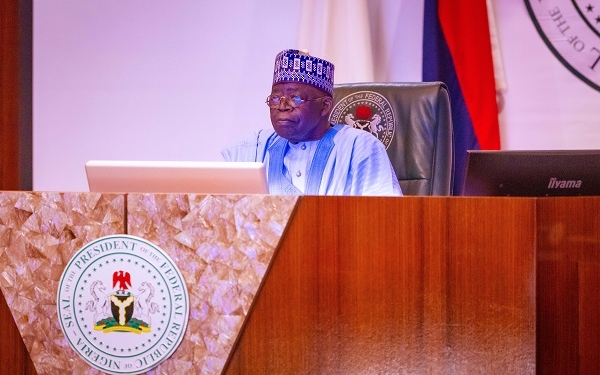- Says if the private institutions’ students should be considered, then some may argue for Nigerians studying abroad to also benefit
The management of the Nigerian Education Loan Fund (NELFUND) has given reasons why students from private institutions and convicted inmates in the nation’s correctional service centres are exempted from applying for the soon to be launched student loan fund.
Speaking Wednesday at the University of Lagos (UNILAG) during an interactive session with journalists under the umbrella of the Education Writers’ Association (EWAN), the Managing Director of NELFUND, Akintunde Sawyerr, said the scheme is strictly for “indigent” students.
Mr Sawyerr, who hinted of President’s Bola Tinubu’s desire to have beneficiaries both from private and public institutions, said since the fund is truly for the indigent students, he insisted that such categories of students could not be found in private tertiary institutions.
He said: “I met with the President and he asked similar questions because of his belief that every Nigerian children whose parents’ taxes form the sources of the loan should benefit.
“But we cannot say because the taxpayers are the funders and so the purpose should be defeated. Any student found in private institutions in Nigeria cannot be said to be poor.”
The managing director said if the private institutions’ students should be considered, then some may argue for Nigerians studying abroad to also benefit.
“What we are to do is wealth redistribution and not to take from the rich to pay the rich again. We target only those who truly deserve it and we have our mechanisms to confirm this in place. Applicants’ BVN is one of such,” Mr Sawyerr added.
Asked if inmates of correctional service’s custodial centres who are studying in higher institutions such as the National Open University of Nigeria (NOUN) are qualified, the managing director said without stigmatising them, it would be difficult to offer loans to persons serving jail terms “because how do they pay back?”
“The money is not grant but loan that is recoverable but how do you recover loan from somebody serving life sentence or prolonged jail term? Even when they are out, there could be difficulties securing jobs that will enable them to repay,” he explained.
He added that the scheme would better serve students who haven’t been convicted of any wrongdoing.
Corroborating the MD, NELFUND’s Executive Director of Finance and Administration, Frederick Akinfala, said an inmate convicted of rape or murder shouldn’t be favoured over someone who isn’t or hasn’t been convicted.
The EWAN, a body of journalists across print, online and broadcast platforms, raised concerns about the implementation of the loan scheme, from the application, selection of beneficiaries, disbursement and refund.
The Chairperson of EWAN, Mojeed Alabi, highlighted the role of journalists to not only report about the scheme but to also scrutinise and monitor its processes and implementations. He also pointed out the need for NELFUND to prioritise data.
In his comments, Mr Sawyerr said the fund is going to be in two segments for each beneficiary, the chargeable fee that will be paid directly to the institutions on behalf of the students, and stipends that will go directly to the personal accounts of the students.
He said the amount of the stipend, which is meant to support the students on campus will be calculated based on the tuition and the geography of the institutions.
He noted that NELFUND will check the applications and decide the beneficiaries, adding that if a student isn’t selected, it is probably because the student doesn’t meet all the criteria or they have questionable records.
On data, Mr Sawyerr said the agency will start getting data when students start applying and that they will be analysed based on age, gender, and state of orgin, among others.
Beneficiaries, requirements for loan
Mr Sawyerr had earlier revealed that no fewer than 1.2 million young Nigerians will be selected to benefit from the first tranche of the fund.
According to him, the programme will be funded with one per cent of the total annual collectable revenue by the Federal Inland Revenue Service (FIRS), which will amount to N194 billion if the agency meets its projection.
On requirements, Mr Sawyerr listed that beneficiaries would be required to provide their Joint Admissions and Matriculation Board (JAMB) registration numbers, National Identification Number (NIN), and Bank Verification Number (BVN), among other details, before they can apply for the loan.
He added that while the application will be on a designated website, existing students who seek to take the loan would need to provide their matriculation details.








Discussion about this post